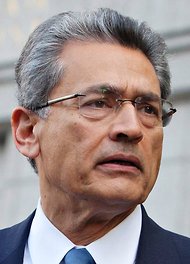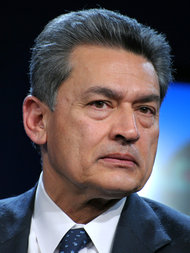The lack of women on corporate boards has been a hot topic in financial circles recently, especially after a debate in Europe last year over imposing quotas.
Now, Wall Street is offering a free-market approach to the issue.
A team within Morgan Stanley’s wealth management division is starting a new portfolio which seeks to invest in companies that have demonstrated a commitment to including women on their corporate boards. The strategy, known as the parity portfolio, is scheduled to get going on April 1.
In a report last summer, Credit Suisse’s research institute found that over a six-year period, companies with “at least some” women on their boards did better, in terms of share price, than those with none.
“It just seemed to make sense, given I’m a feminist and an investment adviser,” said Eve Ellis, a financial adviser with the Matterhorn Group at Morgan Stanley Wealth Management, who is running the strategy with her colleague Nikolay Djibankov. “I’m frustrated by the fact that there are so few women on boards.”
The strategy seeks to encourage companies to think deeply about the gender makeup of their boards. Only companies with at least three women board members will be included in the portfolio. The strategy, being marketed to individuals and institutions, requires a minimum investment of $250,000.
The portfolio is avoiding tobacco, firearms and oil companies, and it is overweighted in consumer discretionary and health care companies, according to Ms. Ellis. All of the companies in the portfolio are based in the United States.
In addition to the Credit Suisse report, Ms. Ellis cited research from McKinsey Company and the nonprofit organization Catalyst to support the investment thesis.
A proposal in Europe to require companies to have 40 percent of their board members be women generated considerable controversy last year. After the plan was revised, the European Commission approved a proposal in November aimed at making the requirement a law.
Still, research on the matter is not conclusive, Steven M. Davidoff, DealBook’s Deal Professor, wrote in September.
“That men and women are different may be true,” Mr. Davidoff wrote, “but this still doesn’t mean that the more women there are, the better the company’s profits.”
Article source: http://dealbook.nytimes.com/2013/03/20/from-morgan-stanley-investing-in-women-on-corporate-boards/?partner=rss&emc=rss








